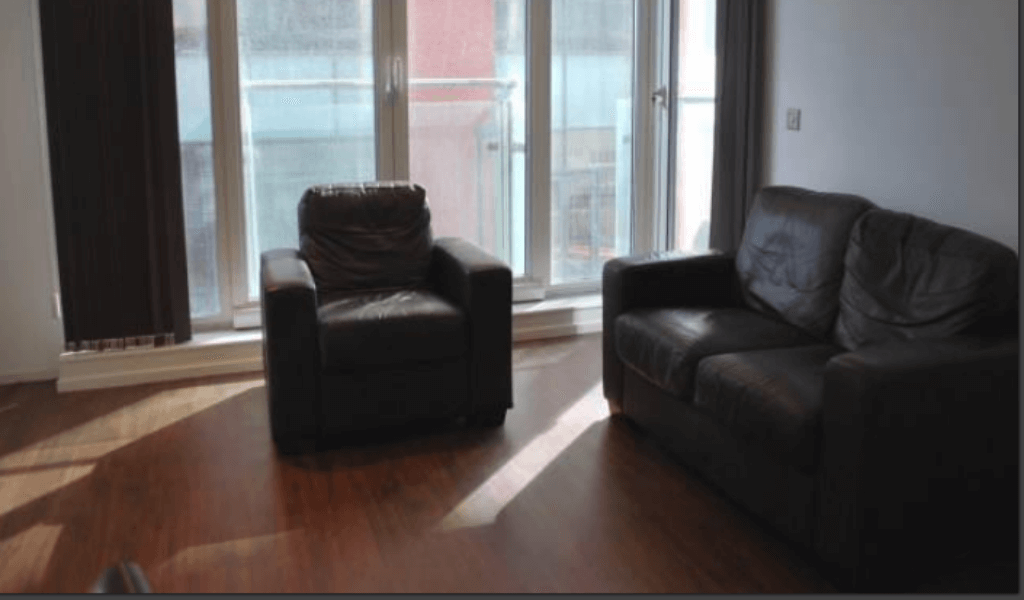We’ve all read the stories about property millionaires. People who retired at 40, and live in the sun. But what happens when the property dream turns into a nightmare, and your investment is losing money? This can lead to questions: is buy to let worth it? Is buy to let dead?
As a property investor, there’ll come a time when a property is losing money. You may have a bad letting agent or a tenant that isn’t paying. The good news is that there’s always a solution to the problem. Then key thing is not to panic - figure out why the property is losing money and then work on a solution.
In this article, I describe the most common solutions for a buy-to-let that’s losing money. The solutions given here will work in 95% of cases.
If you want to get notified of my new content, don’t forget to sign up to my email list and follow me on Twitter.
Having a property that’s losing money is unpleasant. Watching money leave your account every money is like a punch in the gut. It can lead to you questioning yourself: Is buy to let worth it? is buy to let a good investment? In my view, the answer is yes, but you must be calm and work on a solution!
The 1st task is to figure out why your property is losing money. This will help to identify a solution, and provide vital lessons for the future. Here are some common issues
- You paid too much for your property. This is common in areas like Canary Wharf, which are flooded with investors. They bid each other up and overpay
- You bought an expensive area (e.g. London) where rental yields are low
- Your property has lots of maintenance problems
- Your mortgage is too expensive
- Your property wasn’t marketed well, and your rent is below market
Selling your property is probably the worst thing you can do! UK history is littered with property investors that got cold feet and sold too soon. Don’t be that guy! Historically, UK property has doubled in value every 10 years.
I purchased a property in London in 2011. The previous owner bought in 2007 and the value of his property didn’t move in 4 years. In 2011, he got fed up and sold it to me - by 2013, the property value had risen by 40%.
It’s not fun to have a property investment that’s losing money. The temptation to get out can be large, but you need to resist that temptation.
Do you have the very best mortgage possible? There’s a good chance that you don’t. A new mortgage can be the easiest way to save money and boost the profits of your investment.
To find a better mortgage, you’ll need to speak to a good mortgage broker. A good broker will have dealt with 1000’s of mortgages and have contacts with major lenders. When choosing a mortgage broker, look for the following:
- A whole of market broker
- Don’t go for a broker tied to an estate agent or mortgage lender. They’ll only show you a small number of deals
- Make sure the broker doesn’t charge you. They’ll get paid by the mortgage lender
Just approach a mortgage broker and see if they can find a better deal.
In city centre locations, buy to let Airbnb can be more profitable than long term lets. I switched a property of mine in Central London to Airbnb, and it earns 45% more. This property has an average rating of 4.8*. You’ll want to list your property on many short-let channels, including Airbnb, Booking.com and HomeAway. As a buy to let Airbnb, you’ll be competing with hotels, rather than rental properties. You’re essentially moving your property to different market – a far more lucrative one.
I’ve written a detailed guide on how to become an Airbnb host. I’ve switched a few of my properties to buy to let Airbnb, and found the strategy to be less risky than long term lets. At any given time, I have the choice between a short-term let, a mid let (~3 months) or a long let (>6 months). This gives me the flexibility to change strategy. One example was when social distancing was introduced during the Coronavirus pandemic.
There’s some things to be aware of, with a buy to let Airbnb strategy:
- Short let tenants have far less rights than long term tenants on an AST (Assured shorthold tenancy). This is better for the landlord
- For flats, your lease with the freeholder may prohibit short-term lets. You’ll need to check this. There are ways to legally get round these rules, but I can’t publish details on the blog. Contact me for more details
- For short term lets, you’ll be competing with hotels like Hilton and Marriot. You’ll need to have a good standard of decoration
- There’s many Airbnb management companies that will fully clean your property, in-between guest stays
- You’ll need a specialist mortgage product that allows short-term lets
- You’ll need a specialist insurance product
- There’s some laws to be aware of. In London, you’re limited to short-lets for 90 days per year. In reality, this is only enforced by Airbnb. Other channels don’t monitor this
As you can see, there’s some work involved. But I can tell you from personal experience, that the extra profits make it a great strategy.
If you want advice on how to maximise returns with short term lets, then I offer a business coaching service. The 1st session is free, so it’s definitely something to consider.
Self Management is something that many landlords do. Letting agents charge around 15% to manage your property, so self-management can save you a lot of money. Check out this Government Website, which summarises your responsibilities as a landlord. In particular, you’ll need to:
- Hold your tenant’s deposit is an approved scheme
- Get a gas safety certificate done once a year
- Provide an Energy Performance Certificate for the property
- Check that your tenant has the right to rent your property
- Give your tenant a copy of the How to rent checklist when they start renting from you
To be clear, self-management isn’t a stress-free life. At some point, you’ll get a call at 11pm, and hear that there’s no hot water in your property!
If you own a buy-to-let property in your own name and are a higher rate taxpayer, then you should try to move the property into a limited company. Since 2020, mortgage interest is not a fully deductible expense. This is essentially a tax rise for landlords. It could mean that your property is making a loss, and you still need to pay tax! Further details can be found on this UK Government website.
There’s a number of solutions to this issue. The most popular has been to purchase a property through a limited company. Mortgage interest is fully tax deductible inside a limited company.
Moving your property to a limited company may incur stamp duty and capital gains tax liabilities. It’s possible to avoid these taxes by using Section 162 Incorporation Relief. You need to structure your affairs right. I explain how to do this in this article.
The majority of buy-to-let purchases now take place within a limited company.
Changing your letting agent can be a very effective solution, but is one that people rarely utilise. I once employed a letting agent who used the worst photos imaginable to market a property of mine. You can see these photos in the slideshow above. The only offer that came in, was below market rate. I made sure to change the letting agent at the 1st opportunity.
If you’re losing money on your buy-to-let, then you should have an honest conversation with your letting agent. Ask them why the property isn’t making enough money, and what can be done to remedy it. If they’re a good agent, they’ll give you some honest answers.
If this doesn’t work and the agent gets defensive, then you should change your letting agent. Have conversations with other letting agents and ask them why your property isn’t earning enough.
Your old letting agent might make your life difficult once you leave. If this happens, there are avenues available to you. You can complain to the Property Ombudsman or the Property Redress Scheme. Another solution is to write a Google Review.
Finding a tenant yourself is something that very few landlords do. It’s far less common than self-managing a property. This is surprising, as most landlords will do a better job than a letting agent. Finding a tenant yourself isn’t very difficult, but you should familiarise yourself with the information on this Government Website.
Here’s a few suggestions:
- List your property on both Rightmove and Zoopla
- Use professional photos. You can find people for £100
- Stay by your phone and answer quickly to queries. The world of lettings moves fast - one day is an eternity
- You’ll need to sign an AST (assured shorthold tenancy) with your tenant
- You’ll need to put your tenant’s deposit in an approved scheme
- Check your tenant has the right to rent your property
- Give your tenant a copy of the How to rent checklist when they move in
- Carry out a full inventory of the property at check-in. Then get the tenant to sign it
One solution to a loss making property is to refurbish it, and rent it out at a higher price. Firstly, do some research and see if better decorated properties make more money. Go to Rightmove and look at similar properties in your area. Are these properties renting at a higher level, and what is the quality of the decoration? Use this information to decide if your property needs to be refurbished.
The easiest way to make your property more attractive is to re-paint. Improvements like new bathrooms and kitchen can be very costly, so proceed with caution. Check out this article where I describe a refurb that I carried out on a property in London.
If you have a loss-making buy-to-let, it’s upsetting to see money leave your account every month. You may ask yourself: is buy to let worth it? Is buy to let a good investment? The temptation to sell can be huge, but I urge you to resist. There’s normally a solution.
I’ve given a number of strategies to turn around the situation. I’d urge you to use these strategies rather than selling, as property is a great way to build long term wealth.















???? Ticket- TRANSACTION 0.75531364 BTC. Assure >> https://graph.org/GET-BITCOIN-TRANSFER-02-23-2?hs=1e05ad945bb2a7feb00f2b5fbf523af9& ????
bf5i0x